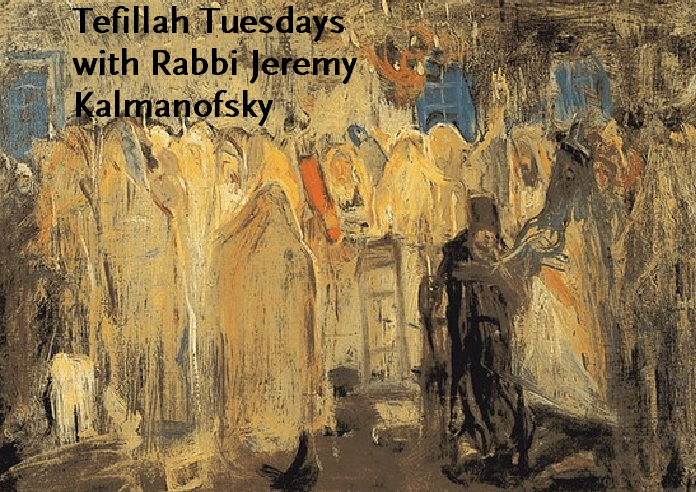Good prayer is an interior experience, meditatively sinking into heart, mind, and soul. All religions prize this inwardness, through various traditions of hermitage and retreat. In Judaism, one word for spirituality is פנימיות, or “interiority.” A term for meditation is התבודדות, or “aloneness.”
So why don’t Jews pray alone? Why do we prize gathering in quorums of at least 10? Isn’t there some loss of private concentration by being in public space?
Perhaps so. It might be harder to concentrate deeply when among a group. They might pray faster than you, or slower; they might talk or giggle or cough or sing off-key. And yet …
Sharing participation in public prayer reminds you that you pray not for yourself alone. Good prayer requires sharing your warmest, most generous wishes for others. Praying for yourself is like building a wall around your house, said R. Yehuda HaLevi, while praying in a group is like contributing toward maintaining the city walls [Kuzari 3.19].
Public prayer reminds us that Jewish tefillah should not be focused primarily on the self – even regarding something as genuinely important as spiritual experience.
One way to bring this value into your own prayer practice comes from R. Isaac Luria, the mystical master of 16th century Sefat. You should begin your prayer each day with the affirmation: “I hereby accept the mitzvah love your neighbor as yourself, for I am the Lord.” I wish for them every benefit that I wish for myself [cf. Ramban at Leviticus 19.18]. When I daven, it is not for my own enrichment, but to bring blessing to everyone in the room, and everyone in the community.
Tefillah Tuesday: Personal Prayer in the Public Space





